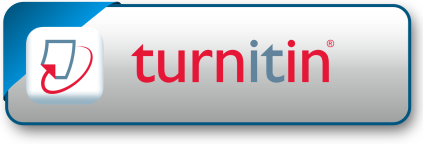IMPLEMENTASI PRINSIP GOOD GOVERNANCE DALAM PENGELOLAAN SATU MILYAR SATU DESA DI KABUPATEN BOGOR (STUDI DI DESA PASIR ANGIN KECAMATAN CILEUNGSI)
DOI:
https://doi.org/10.24853/swatantra.21.2.161-168Keywords:
Good Governance, Satu Milyar Satu Desa, Desa Pasir AnginAbstract
Penelitian ini mendeskripsikan tentang prinsip-prinsip good governance yang berperan dalam mewujudkan pemerintahan yang bersih untuk kesejahteraan masyarakat. Good governance merupakan bagian strategis yang digunakan untuk memperbaiki kinerja pemerintahan termasuk pada pengelolaan sumber-sumber keuangan Desa. SAMISADE merupakan program Pemerintah Kabupaten Bogor berupa bantuan keuangan khusus yang anggarankan dari APBD Kabupaten Bogor untuk diproyeksikan untuk pembangunan infrastruktur dan perekonomian desa. Implementasi prinsip good governance meliputi akuntabilitas, transparansi, dan partisipasi dalam pengelolaan SAMISADE menjadi skala prioritas. Tujuan penelitian ini adalah untuk mengetahui implementasi prinsip good governance dalam pengelolaan SAMISADE pada tahun 2021. Sasaran penelitian ini adalah Desa Pasir Angin Kecamatan Cileungsi Kabupaten Bogor. Metode penelitian menggunakan pendekatan kualitatif dengan metode studi kasus. Teknik pengumpulan data dilakukan melalui tahapan wawancara, studi dokumentasi, serta observasi dengan metode analisis data yaitu data collection, reduksi data, penyajian data, dan verifikasi. Hasil penelitian menunjukkan bahwa prinsip good governance dalam pengelolaan SAMISADE di Desa Pasir Angin secara umum terimplementasi dengan baik meliputi akuntabilitas dijalankan dengan baik sesuai dengan prosedur dan mekanisme, trasnparansi yang dikelola cukup baik kendati tidak semua masyarakat dapat menjangkau laporan pertanggungjawaban dari Pemerintah Desa, dan partisipasi masyarakat yang terlibat bersama Pemerintah Desa Pasir Angin dalam merealisasikan SAMISADE. Faktor pendukung dalam pengelolaan SAMISADE di Desa Pasir Angin meliputi Sumber Daya Manusia, sarana dan prasarana, komunikasi, dan manajemen koordinasi dukungan masyarakat terhadap pemerintah. Sedangkan faktor penghambat tidak terlalu signifikan yakni faktor cuaca seperti hujan sehingga lambat dalam pengerjaan pembangunan infrastruktur.References
Sumber Buku :
Dwiyanto, Agus. 2018. Mewujudkan Good Governance Melalui Pelayanan Publik. Yogyakarta: Gadjah Mada University Press.
Hardani, dkk. 2020. Metode Penelitian Kualitatif & Kuantitatif. Yogyakarta: CV. Pustaka Ilmu.
Moenek, Reydonnyzar dan Dadang Suwanda. 2019. Good Governance Pengelolaan Keuangan Daerah. Bandung: PT.Remaja Rosdakarya.
Moleong, Lexy J. 2017. Metodologi Penelitian Kualitatif. Bandung: PT Remaja Rosdakarya.
Muhammadong. 2017. Good Governance Dalam Perspektif Hukum Islam. Makassar: Edukasi Mitra Grafika.
Nugroho, Riant dan Firre An Suprapto. 2021. Manajemen Keuangan Desa Bagian I: Konsep Dasar. Jakarta: Kompas Gramedia.
Rukajat, Ajat. 2018. Pendekatan Penelitian Kualitatif (Qualitative Research Approach). Yogyakarta: Budi Utama.
Soleh, Chabib dan Heru Rochansjah. 2014. Pengelolaan Keuangan Desa. Bandung: Fokus Media.
Yuniningsih, Tri. 2018. Etika Administrasi Publik. Semarang: Program Studi Doktor Administrasi Publik Press.
Sumber Jurnal :
Rahajeng, Maharani Mufti. 2020. Penerapan Prinsip-Prinsip Good Governance Dalam Pengelolaan Dana Desa di Desa Wlahar Wetan Kecamatan Kalibagor Kabupaten Banyumas. Vol. 4 No 2 : 163-174.
Rosyada, Ayu Amrina, (2016). Analisis Penerapan Prinsip Good Governance dalam Rangka Pelayanan Publik di Badan Pelayanan Perizinan Terpadu Satu Pintu di Kota Samarinda. Vol. 4 No.1 : 102-114.
Safitri, Teti Anggita dan Rigel Nurul Fathah, (2018). Pengelolaan Alokasi Dana Desa Dalam Mewujudkan Good Governance. Vol.2 No.1 : 89-105.
Solikhudin, M. (2017). Penerapan Good Governance di Indonesia dalam Tinjauan Hukum Islam Kontemporer. Vol 7 No. 1:163-187.
Susanto, Sri Nur Hari, (2019). Good Governance Dalam Konteks Hukum Administrasi. Vol. 2 No.2 : 206-217.
Zaman, Badrus dan Diah Nurdiwaty. (2020). Penerapan Prinsip Good Governance Dalam Pengelolaan Alokasi Dana Desa (Studi Pada Desa Kampungbaru, Kecamatan Kepung, Kabupaten Kediri). Vol. 5, No.1: 65-84.
Sumber Artikel :
Lailatul, Umi H, dkk., (2018). Penggunaan Instrumen Lembar Wawancara Pendukung Tes Diagnostik Pendeteksi Miskonsepsi Untuk Analisis Pemahaman Konsep Buffer-Hidrolisis. Dari https://journal.unnes.ac.id. Diakses pada tanggal 5 April 2023.
Maulida, Ana Bidayatul, Arik Susbiyani, dan Astrid Maharani. 2021. Penerapan Prinsip Good Governance dalam Pengelolaan Alokasi Dana Desa. Dari https:// publikasi.polije.ac.id. Diakses pada tanggal 6 April 2023.
Pupu, S.R. (2009). Penelitian Kualitatif. http://yusuf.staff.ub.ac.id/files/2012/11/Jurnal-Penelitian-Kualitatif.pdf. Diakses pada tanggal 1 April 2023.
Sumber Skripsi :
Ismayanti, (2021). Implementasi Prinsip-prinsip Good Governance dalam meningkatkan kualitas pelayanan publik di kantor Kecamatan Masalle Kabupaten Enrekang. Makassar: Universitas Muhammadiyah Makassar.
Putra, Regi Oktananda, (2020). Pengawasan Realisasi Anggaran 1 Miliar oleh Badan Permusyawaratan Desa (BPD) di Desa Simpang Padang Kecamatan Batin Solapan Kabupaten Bengkalis. Riau: Universitas Islam Riau.
Sumber Peraturan Pemerintah:
Indonesia. 2014. Peraturan Pemerintah Republik Indonesia Nomor 43 Tahun 2014 Tentang Desa. Lembaran Negara Republik Indonesia Tahun 2014 Nomor 7. Tambahan Lembaran Negara Republik Indonesia, Nomor 5495. Jakarta.
Sumber Media Internet :
Kabupaten Bogor. Program SAMISADE ubah jalan “ampun” menjadi jalan “Alhamdulillah” serta bangun jalan sepanjang 9.123 Meter di Kecamatan Cileungsi. bogorkab.go.id (Diakses pada tanggal 1 April 2023).
Kecamatan Cileungsi Kabupaten Bogor. Desa Pasir Angin. kecamatancileungsi.bogorkab.go.id (Diakses pada tanggal 30 Maret 2023).
Rosiani, Weni Dwi. Desa Pasir Angin Kecamatan Cileungsi Kabupaten Bogor. Klipaa.com (Diakses pada tanggal 1 Mei 2023
Downloads
Published
Issue
Section
License
Copyright aims to protect the specific way the article has been written to describe an experiment and the results. SWATANTRA is committed to its authors to protect and defend their work and their reputation and takes allegations of infringement, plagiarism, ethical disputes, and fraud very seriously. SWATANTRA is published under the terms of the Attribution-NonCommercial 4.0 International (CC BY-NC 4.0). Authors retain copyright and grant the journal right of first publication (online and print) with the work simultaneously. We use the restrictive license (non-commercial) as follows:
BY (attribution): Users are allowed to share, distribute and redistribute the published article in any medium or format, with an identification of the authors and its initial publication in this journal. Authors are encouraged to post and distribute their articles immediately after publication (e.g., institutional or public repositories, personal websites). Authors are allowed to enter into additional contractual arrangements for the non-exclusive distribution of the published and an acknowledgment of its initial publication in this journal.
NC (non-commercial): Users are not allowed to use the article commercially without the permission of the authors. Authors agree explicitly that the published article is indexed worldwide in databases, repositories, and indexation services, even if these services operate on a commercial basis. Authors grant SWATANTRA explicit the right to include the published articles in databases, repositories, and indexation services. You can see examples of personal and commercial use on this link.
Below you may find the full text of the license signed by authors.
License
- License to Publish
The non-commercial use of the article will be governed by the Attribution-NonCommercial 4.0 International (CC BY-NC 4.0). The author hereby grants SWATANTRA an exclusive publishing and distribution license in the manuscript include tables, illustrations, or other material submitted for publication as part of the manuscript (the “Article”) in print, electronic, and all other media (whether now known or later developed), in any form, in all languages, throughout the world, for the full term of copyright, and the right to license others to do the same, effective when the article is accepted for publication. This license includes the right to enforce the rights granted hereunder against third parties.
- Author’s Warranties
The author warrants that the article is original, written by stated author/s, has not been published before, contains no unlawful statements, does not infringe the rights of others, is subject to copyright that is vested exclusively in the author and free of any third party rights, and that any necessary written permissions to quote from other sources have been obtained by the author(s).
- User Rights
Under the Creative Commons Attribution-Non Commercial 4.0 International (CC BY-NC 4.0) license, the author(s) and users are free to share (copy and redistribute the material in any medium or format) and adapt (remix, transform, and build upon the material). Users must give appropriate credit, provide a link to the license, and indicate if changes were made.
- Rights of Authors
Authors retain the following rights:
- Copyright, and other proprietary rights relating to the article, such as patent rights,
- The right to use the substance of the article in future own works, including lectures and books,
- The right to reproduce the article for own purposes, provided the copies are not offered for sale, and
- The right to self-archive the article.
- Co-Authorship
If the article was prepared jointly with other authors, the signatory of this form warrants that he/she has been authorized by all co-authors to sign this agreement on their behalf, and agrees to inform his/her co-authors of the terms of this agreement.








